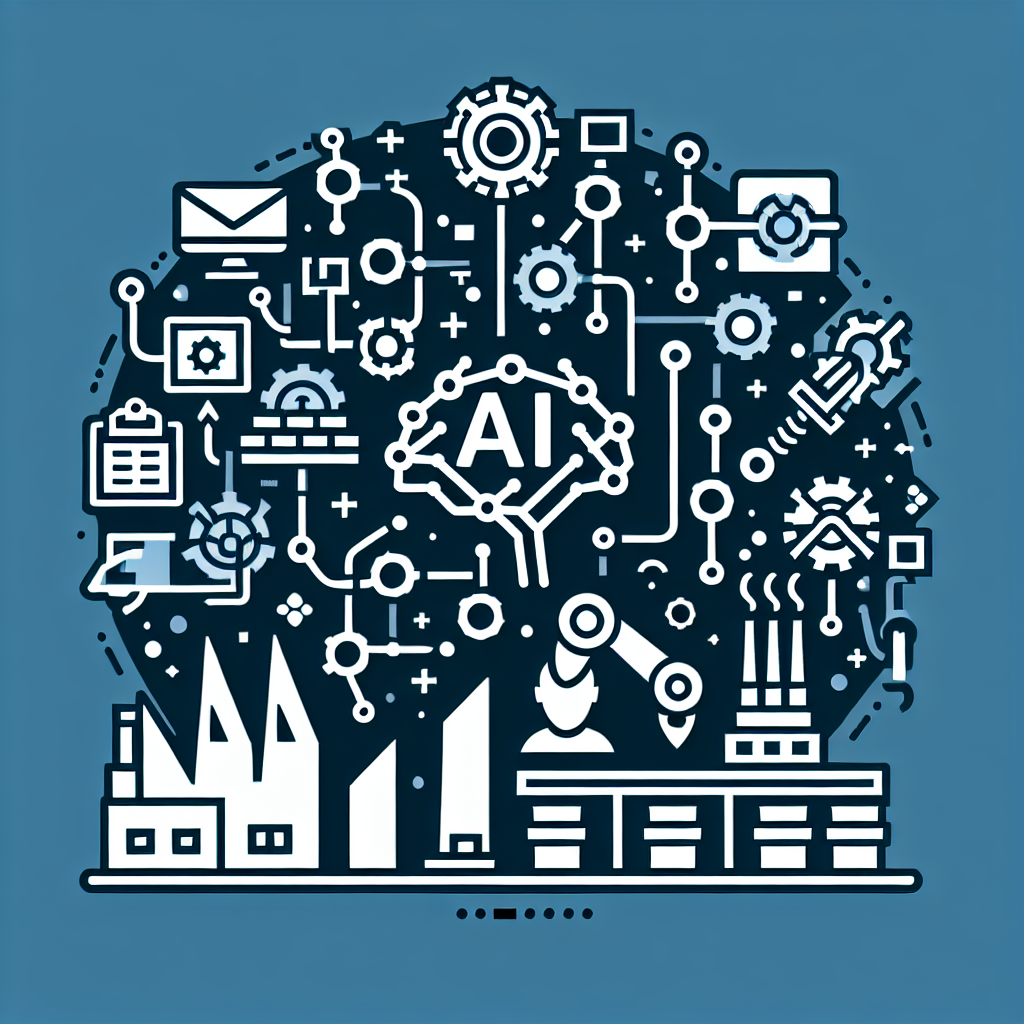In today’s fast-paced manufacturing industry, companies are constantly looking for ways to optimize their supply chain processes in order to increase efficiency, reduce costs, and improve overall productivity. One of the most promising technologies that is revolutionizing supply chain management is artificial intelligence (AI).
AI-driven supply chain optimization uses advanced algorithms and machine learning techniques to analyze large amounts of data and make real-time decisions to improve the flow of materials, information, and products throughout the supply chain. By leveraging AI, manufacturers can automate and streamline their processes, identify potential bottlenecks, predict demand, and manage inventory more effectively.
Benefits of AI-driven Supply Chain Optimization in Manufacturing:
1. Improved Efficiency: AI can help manufacturers optimize their production schedules, reduce lead times, and improve overall operational efficiency. By analyzing data in real-time, AI can identify opportunities to streamline processes and eliminate waste, ultimately leading to cost savings and increased productivity.
2. Demand Forecasting: AI algorithms can analyze historical sales data, market trends, and other factors to accurately predict future demand. This allows manufacturers to adjust production levels and inventory levels accordingly, reducing the risk of stockouts or overstock situations.
3. Inventory Management: AI can help manufacturers optimize their inventory levels by automatically adjusting reorder points, safety stock levels, and lead times based on demand forecasts and other factors. This can help reduce carrying costs, minimize stockouts, and improve overall inventory turnover rates.
4. Supply Chain Visibility: AI-driven supply chain optimization provides manufacturers with real-time visibility into their supply chain operations, allowing them to track shipments, monitor inventory levels, and identify potential issues before they escalate. This can help manufacturers respond quickly to disruptions and improve overall supply chain resilience.
5. Reduced Costs: By optimizing production schedules, inventory levels, and transportation routes, AI-driven supply chain optimization can help manufacturers reduce costs associated with excess inventory, inefficient processes, and transportation expenses. This can lead to significant cost savings and improved profitability.
FAQs:
Q: How does AI-driven supply chain optimization work?
A: AI-driven supply chain optimization uses advanced algorithms and machine learning techniques to analyze data from various sources, such as sales forecasts, production schedules, inventory levels, and transportation routes. By processing this data in real-time, AI can identify patterns, trends, and opportunities to optimize supply chain processes and improve overall efficiency.
Q: What are the key benefits of AI-driven supply chain optimization in manufacturing?
A: Some of the key benefits of AI-driven supply chain optimization in manufacturing include improved efficiency, demand forecasting, inventory management, supply chain visibility, and reduced costs. By leveraging AI technologies, manufacturers can automate and streamline their processes, optimize production schedules, and make better-informed decisions to improve overall supply chain performance.
Q: How can companies implement AI-driven supply chain optimization?
A: Companies can implement AI-driven supply chain optimization by investing in AI technologies, such as machine learning algorithms, data analytics tools, and predictive modeling software. By leveraging these technologies, companies can analyze large amounts of data, identify opportunities for optimization, and make real-time decisions to improve supply chain performance.
Q: What are some challenges associated with implementing AI-driven supply chain optimization?
A: Some of the challenges associated with implementing AI-driven supply chain optimization include data quality issues, integration with existing systems, and resistance to change. Companies may need to invest in data cleansing and integration tools, as well as provide training and support to employees to ensure successful implementation of AI-driven supply chain optimization.
In conclusion, AI-driven supply chain optimization is revolutionizing the manufacturing industry by enabling companies to automate and streamline their processes, improve efficiency, reduce costs, and enhance overall supply chain performance. By leveraging advanced algorithms and machine learning techniques, manufacturers can make better-informed decisions, optimize production schedules, and improve inventory management to stay competitive in today’s fast-paced business environment.

